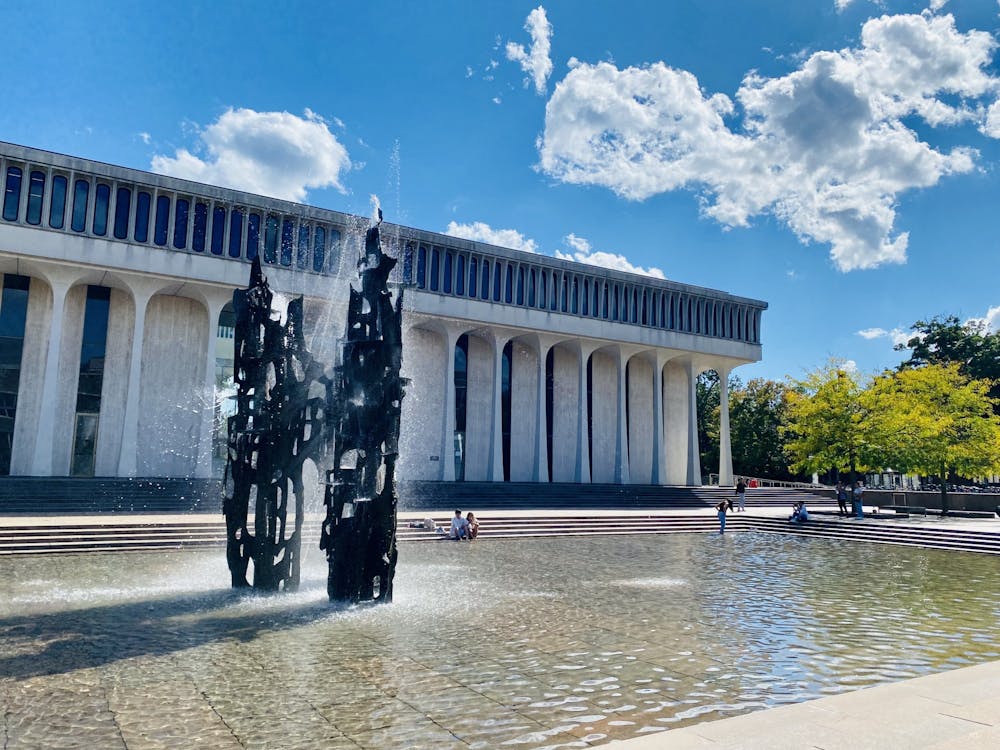Three journalists and policy experts discussed the “narrative case as a tool for understanding complex policy problems” at a panel on Friday, Sept. 30, emphasizing the importance of using case studies in both journalism and public policy research.
The event, titled “Addressing Complex Policy Challenges Through the Lens of Progress: The Value of Narrative Case Studies in Scholarship, Policy Making, and Journalism,” was sponsored by the Princeton School of Public and International Affairs (SPIA).
With both public policy scholars and professional journalists in conversation, the panel aimed to provide different perspectives “on the narrative case as a tool for understanding complex policy problems,” according to Professor of Politics and International Affairs Jennifer Widner, who moderated the event.
Michael Kimmelman, one of the speakers, is the founder and editor-at-large of the New York Times Headway venture, a philanthropically funded, freely accessible journalism project that “looks beyond the daily news cycle and focuses on large-scale global and national problems.” Matt Thompson, another panelist, is the current editor for Headway.
At the event, Thompson described the formula for a traditional news story as starting with “what happened today that didn’t happen yesterday.” Headway was created as a response to these gaps in journalistic approaches, in an attempt to address how journalists can use case studies to generate conversations.
“Our most elaborate and sophisticated tools are investigative and enterprise journalism and criticism towards questions that people feel are pressing,” Thompson said.
In June, Headway published a story about homelessness in the United States by focusing on the crisis in a specific American city: Houston.
Thompson and Kimmelman were motivated to pursue this story by what they saw as inconsistent assumptions and representations of homelessness in America. “I knew that homelessness had declined in the United States in recent years,” Kimmelman said. “I knew that almost all of the public and certainly journalistic conversation on homelessness was exactly the reverse, that this was an intractable growing, nightmarish problem.”

Using Houston as an example, Headway embarked on a year-long project to portray the realities of homelessness in the United States through the narrative case study. Kimmelman gathered perspectives to represent the story of homelessness in a city that has moved 25,000 homeless people into apartments and houses.
“Our ability, responsibility, and opportunity is to try to do things in a narrative form that will engage enough people with a subject that will continue the conversation,” Kimmelman said.
Michael Woolcock, an adjunct lecturer in public policy at the Harvard Kennedy School of Government and the lead social scientist with the World Bank's Development Research Group, discussed the use of case studies as tools in generating policy. Widner described Woolcock at the event as someone with “one foot in the practitioner world, one foot in the academic world.”
Woolcock argues that case studies play an important role in correcting the effects of professionalizing, generalizing, and summarizing in academia, specifically the social sciences.

Professionalizing, in Woolcock’s view, dominates in law schools, business schools, and medical schools, leading to an impersonal, probabilistic approach to sciences and studies that actually involve people.
“I want to be able to talk with someone who understands my own history,” Woolcock said.
There is a general phenomena at universities like Princeton and Harvard, where, in the social sciences, there is an “obsession, essentially, with causation,” he said. “Causation understood in a very narrow kind of sense that X causes Y.”
The absence of the case study in academia and the creation of policy, therefore, involves the practice of summary over anecdote. The inclusion of case studies, according to Woolcock, requires academic commitment to “treat cases seriously, not just as the color providers.” To him, case studies “put some people back into this into the story and say no, that story is the story.”
The event was held on Friday, Sept. 30, in Robertson Hall from 12:15–1:30 p.m. as a celebration of “The Case for Case Studies,” Woolcock and Widner’s new book.
Isabel Yip is an assistant news editor who typically covers University affairs and student life. She can be reached at isabelyip@princeton.edu or on Instagram at @isaayip.








